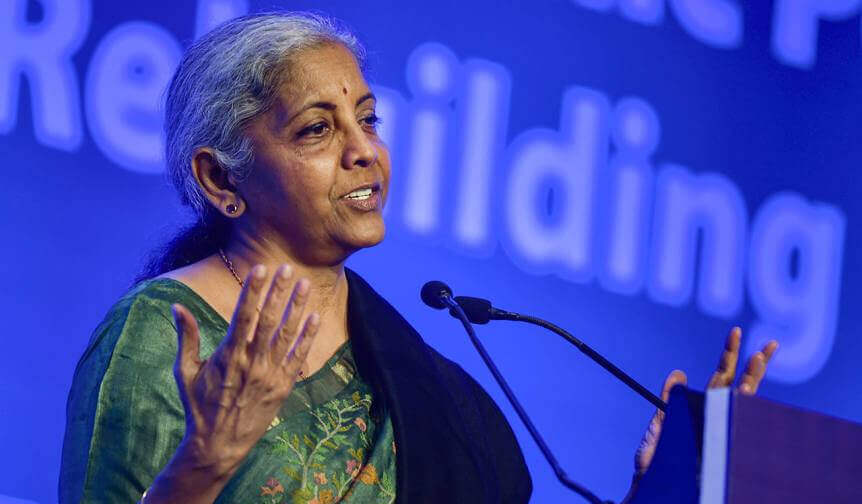Nagpur: Finance Minister Nirmala Sitharaman on Tuesday made a strong case for regulating cryprocurrencies at a global level to mitigate the risk of money laundering and terror funding.
Participating at a high-level panel discussion organised by the IMF, the Finance Minister said that as long as the non-governmental activity of the crypto assets was through unhosted wallets, the regulation was going to be very difficult.
However, she said, cross border payments between countries will become very effective through Central Bank-driven digital currencies.

“The risk which worries me more on the non-governmental domain is essentially you’re looking at unhosted wallets across the borders, across the globe… So, regulation cannot be done by a single country within its terrain through some effective method and for doing it across the borders, technology doesn’t have a solution which will be acceptable to various sovereigns at the same time applicable within each of the territory,” she said.
The risks involved will have to be differentially approached, because for each user case, the risks can also be different, depending on the economy, she said during a panel discussion on the topic ‘Money at a Crossroad: Public or Private Digital Money?’
Pointing out that unless there’s going to be a global approach at regulating and understanding of the technology on cryptocurrencies there is a risk of money laundering.
“I harp on that very much because I think the biggest risk for all countries across the board will be on the money laundering aspect, and also on the aspect of currency being used for financing terror,” she said.
With regard to taxing income generated from transactions in crypto assets, Sitharaman said it is a means to check the source and trail but not to legitimise them.
“We haven’t said that this is currency. We haven’t said that this has intrinsic value, but certain operations are taxable for the sovereign and that is why we have taxed,” she said.
Budget 2022-23 proposed a 30 per cent tax on income from transactions in crypto assets and also imposed a 1 per cent TDS (tax deducted at source) on transactions in such asset classes above a certain threshold.
“We did announce that on the income that was generated out of the transactions of these crypto assets will be taxed at 30 per cent and over and above that, there is a 1 per cent tax deduction at source which is also imposed on every transaction. So through that we will be able to know who’s buying and who’s selling it,” she said.
On the Central Bank Digital Currency (CBDC), she said, it is going to happen sometime this year.
RBI is planning to come out with a central bank-backed digital currency using blockchain technology in 2022-23.














